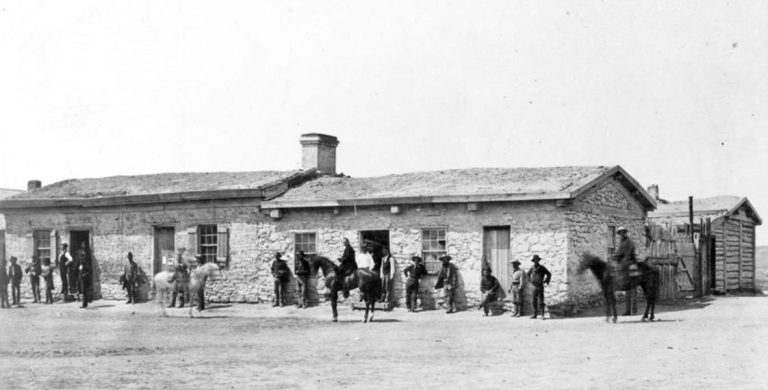When it comes to protecting your business from financial risks, having the right insurance coverage is paramount. Two essential types of insurance that often come up in discussions are general liability insurance and workers’ compensation insurance. However, it’s crucial to recognize that these two policies serve distinct purposes, and one does not replace the other.
In this comprehensive article, we will delve into the specifics of general liability insurance and workers’ compensation insurance, highlighting their key differences and explaining why it’s vital to have both in place to safeguard your business and employees adequately.
Contents
What is General Liability Insurance?
General liability insurance is designed to protect your business from financial losses arising from third-party claims of bodily injury, property damage, or personal and advertising injury. These claims could stem from various incidents, such as a customer slipping and falling on your premises, your product causing harm to a consumer, or your advertising campaign infringing on someone else’s intellectual property rights.
Key Coverages of General Liability Insurance
- Bodily Injury and Property Damage Liability: Covers medical expenses, legal fees, and settlements if someone is injured or their property is damaged due to your business operations.
- Personal and Advertising Injury Liability: Protects against claims of libel, slander, copyright infringement, and other forms of reputational harm.
- Products and Completed Operations Liability: Provides coverage if your products or completed work cause injury or damage to a third party.
What is Workers’ Compensation Insurance?
Workers’ compensation insurance, on the other hand, is specifically designed to provide benefits to employees who suffer work-related injuries or illnesses. It covers medical expenses, lost wages, and rehabilitation costs, regardless of who was at fault for the incident.
Key Benefits of Workers’ Compensation Insurance:
- Medical Benefits: Pays for medical treatment, hospitalization, and rehabilitation related to the work injury or illness.
- Disability Benefits: Replaces a portion of lost wages if the employee is unable to work due to the injury or illness.
- Death Benefits: Provides financial support to the employee’s dependents in the event of a fatal work-related incident.
- Employer Protection: Protects employers from lawsuits filed by injured employees.
Does General Liability Insurance Cover Workers’ Compensation?
No, general liability insurance does not cover workers’ compensation claims.
This is a critical point to understand. General liability insurance is designed to protect your business from claims made by third parties, such as customers or clients. Workers’ compensation insurance, on the other hand, is specifically for your employees and covers their medical expenses and lost wages if they are injured on the job.
Why is it Important to Have Both?
While general liability insurance and workers’ compensation insurance serve different purposes, having both is crucial for several reasons:
- Legal Compliance: In most states, workers’ compensation insurance is mandatory for businesses with employees. Failure to carry this coverage can result in severe penalties, including fines and even the closure of your business.
- Employee Protection: Workers’ compensation insurance provides essential financial support to your employees if they are injured or become ill due to their work. This helps them focus on their recovery without worrying about medical bills or lost income.
- Employer Protection: Workers’ compensation insurance also protects employers from lawsuits filed by injured employees. This can save your business significant legal costs and potential damages.
- Business Continuity: If an employee is injured on the job, workers’ compensation insurance can help ensure that your business operations continue smoothly. By providing benefits to the injured employee, you can avoid disruptions and maintain productivity.
- Reputation Management: Demonstrating that you have adequate insurance coverage, including workers’ compensation, can enhance your business’s reputation and build trust with employees, customers, and partners.
Scenarios Highlighting the Difference
Let’s explore a few scenarios to illustrate the distinction between general liability insurance and workers’ compensation insurance:
- Scenario 1: A customer slips and falls in your store, injuring themselves. This would be covered by your general liability insurance, as it involves a third-party injury.
- Scenario 2: An employee slips and falls in your store while stocking shelves, injuring themselves. This would be covered by your workers’ compensation insurance, as it involves an employee injury that occurred in the course of their employment.
- Scenario 3: A defective product you manufactured causes injury to a customer. This would be covered by your general liability insurance, specifically the products liability component.
- Scenario 4: An employee is injured while operating a defective piece of machinery at your workplace. This would be covered by your workers’ compensation insurance, as it involves an employee injury that occurred in the course of their employment.
Factors Affecting Workers’ Compensation Insurance Costs
Several factors can influence the cost of workers’ compensation insurance for your business:
- Industry: The type of industry you operate in significantly impacts the cost of workers’ compensation insurance. Industries with higher risks of workplace injuries, such as construction or manufacturing, typically have higher premiums.
- Payroll: Your total payroll is a key factor in determining your workers’ compensation insurance costs. The higher your payroll, the more employees you have, and the greater the potential for workplace injuries, leading to higher premiums.
- Claims History: Your business’s past workers’ compensation claims history also plays a role in determining your insurance costs. A history of frequent or severe claims can lead to higher premiums.
- Experience Modification Rate (EMR): The EMR is a rating factor that compares your business’s claims experience to other businesses in the same industry. A lower EMR indicates a better claims history and can result in lower premiums.
- State Regulations: Workers’ compensation laws and regulations vary from state to state, and these differences can impact the cost of insurance.
Tips for Reducing Workers’ Compensation Insurance Costs
While workers’ compensation insurance is essential, there are steps you can take to potentially reduce your premiums:
- Implement Safety Programs: Create and enforce comprehensive safety programs to minimize workplace accidents and injuries. This can demonstrate your commitment to safety and potentially lead to lower premiums.
- Provide Employee Training: Regularly train your employees on safe work practices and procedures. This can help reduce the risk of accidents and injuries, leading to a better claims history and potentially lower premiums.
- Conduct Regular Safety Audits: Conduct periodic safety audits to identify and address potential hazards in your workplace. This proactive approach to safety can help prevent accidents and injuries, leading to lower premiums.
- Return-to-Work Programs: Implement effective return-to-work programs to help injured employees transition back to their jobs as soon as possible. This can reduce the duration of disability claims and potentially lower your premiums.
- Shop Around and Compare Quotes: Don’t just settle for the first insurance quote you receive. Shop around and compare quotes from multiple insurers to find the best coverage and rates for your business.
Conclusion
Does general liability insurance cover workers compensation? The answer is a resounding no.
While both general liability insurance and workers’ compensation insurance are vital components of a comprehensive business insurance plan, they serve distinct purposes and are not interchangeable.
Read More: Arkansas Small Business Insurance: A Comprehensive Guide




